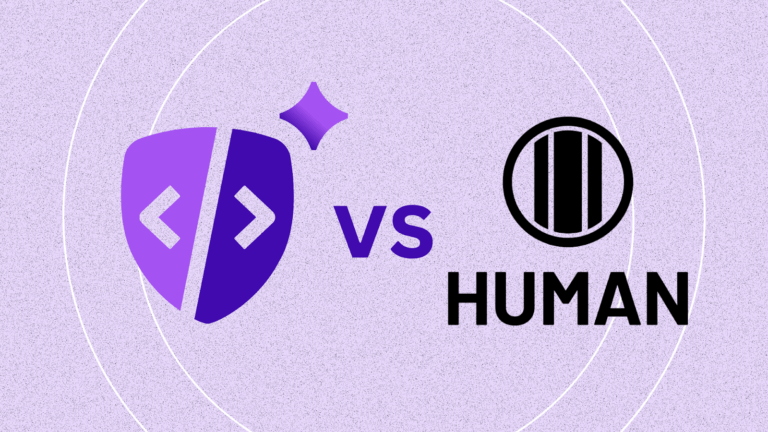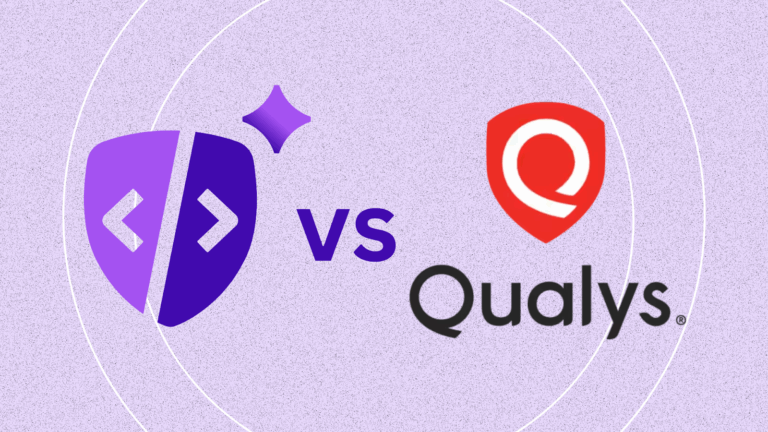Modern payment security requires both enterprise edge protection and specialized client-side PCI controls. Akamai delivers comprehensive security with a unified platform including CDN, WAF, DDoS, and Page Integrity Manager for client-side monitoring.
Feroot PaymentGuard AI specializes in client-side security, automating PCI DSS v4.0.1 Requirements 6.4.3 and 11.6.1 on checkout pages with rapid, low-lift deployment. This comparison explains where each solution fits and why many teams deploy both for complete payment protection.
Akamai: Enterprise security suite with edge and client-side protection
Akamai provides an integrated security platform that protects organizations across multiple layers. Their solution combines global CDN infrastructure, web application firewall (WAF), DDoS protection, and Page Integrity Manager (Client-Side Protection & Compliance) for comprehensive coverage. This enterprise-grade approach delivers security at scale through a unified platform.
Key strengths:
- Global CDN infrastructure that accelerates content delivery while protecting against threats
- WAF protection that filters attacks such as SQL injection and cross-site scripting
- DDoS defense that absorbs large-scale traffic floods
- Page Integrity Manager for client-side script monitoring
- Enterprise-scale deployment with comprehensive analytics and dashboards
Akamai’s platform approach works well for large enterprises that want a single vendor managing multiple security layers. The trade-off is typically longer deployment timelines, higher complexity, and the need to adopt the full Akamai ecosystem to maximize value.
Feroot PaymentGuard AI: Specialized client-side security and compliance
While Akamai offers broad enterprise security capabilities, Feroot specializes exclusively in one critical area: client-side script security and PCI DSS 4.0.1 compliance.
Feroot’s PaymentGuard AI continuously monitors every script running on web payment pages to detect, analyze, and respond to unauthorized or malicious code changes in real time. This focused approach directly supports PCI DSS 4.0.1 Requirements 6.4.3 and 11.6.1, which mandate monitoring of all scripts that can impact payment data security. PaymentGuard AI deploys in 24 hours with minimal ongoing maintenance.
Feroot’s platform uses AI-driven behavior analysis to:
- Automatically detect and log every script change or new third-party tag
- Identify unapproved data access or exfiltration from the browser layer
- Generate automated compliance evidence for PCI DSS audits
- Block unauthorized scripts before they can capture payment data
By focusing exclusively on client-side security, PaymentGuard AI delivers specialized expertise and rapid deployment. Organizations can deploy Feroot alongside their existing CDN, WAF, or edge security providers, including Akamai’s edge infrastructure.
Feature Comparison
Compare how Akamai and Feroot PaymentGuard AI differ in approach, deployment, and focus.
| Capability | Feroot PaymentGuard AI | Akamai |
| Primary focus | Specialized client-side security and PCI DSS 4.0.1 compliance (6.4.3 & 11.6.1). Purpose-built for payment page protection. | Enterprise security suite: CDN, WAF, DDoS protection, and client-side monitoring (Page Integrity Manager). |
| Deployment model | Standalone specialist that works with any CDN, WAF, or security stack. | Integrated platform offering unified security operations across edge and client-side layers |
| Client-side security | Core expertise and only focus. AI-driven behavioral analysis with automated compliance. | Part of broader security suite (Page Integrity Manager). Included with enterprise packages. |
| Implementation time | 24-hour deployment | Varies based on scope and existing infrastructure |
| Ongoing maintenance | Minimal – “set and forget” automated monitoring with AI learning | Enterprise platform management across multiple security layers |
| Evidence & audit readiness | Automatically logs every script and change; generates audit-ready reports mapped to 6.4.3/11.6.1. | Client-side compliance reporting available through Page Integrity Manager dashboard. |
| Best for | Organizations needing rapid client-side compliance, specialist expertise, or best-of-breed approach. Works with existing infrastructure. | Large enterprises seeking unified security operations across edge, application, and client-side layers. |
When to Choose Each Solution
Choose Feroot PaymentGuard AI if:
- You need rapid deployment (24 hours) for PCI DSS 4.0.1 Requirements 6.4.3 or 11.6.1 compliance
- You already have CDN, WAF, or edge security from another provider
- You prefer best-of-breed specialist solutions for specific security domains
- You want focused client-side expertise with automated compliance
- You need QSA-ready compliance reports with minimal audit prep time
- Your primary requirement is client-side script monitoring and PCI compliance
Choose Akamai if:
- You need comprehensive edge security (CDN, WAF, DDoS) in addition to client-side protection
- You prefer unified security operations through a single enterprise vendor
- You’re already using Akamai for edge infrastructure
- You have enterprise-scale requirements across multiple security domains
- You want integrated analytics across all security layers
- You have dedicated security operations teams managing enterprise platforms
Consider both when:
- You use Akamai for edge security and want specialized client-side expertise
- You need faster client-side compliance deployment while maintaining existing Akamai infrastructure
- You want layered defense across critical payment security domains
- Your compliance strategy requires both enterprise edge protection and specialized client-side monitoring
FAQ
Does Akamai offer client-side script monitoring for PCI DSS compliance?
Yes. Akamai offers Page Integrity Manager (also called Client-Side Protection & Compliance), which monitors client-side scripts. Page Integrity Manager is part of Akamai’s enterprise security suite and integrates with their edge infrastructure. Organizations sometimes deploy Feroot when they need specialized client-side expertise, faster deployment timelines, or want to maintain their existing non-Akamai infrastructure while adding dedicated client-side security capabilities.
How does deployment differ between the two solutions?
Feroot deploys in 24 hours with a single JavaScript tag and requires no infrastructure changes. It works with any existing CDN, WAF, or security stack, including Akamai. Akamai Page Integrity Manager integrates with Akamai’s edge platform and typically involves platform configuration as part of broader Akamai deployment. Organizations often choose their approach based on existing infrastructure and timeline requirements.
Which solution is better for audit readiness?
Both solutions support PCI DSS 4.0.1 Requirements 6.4.3 and 11.6.1. Feroot generates pre-formatted, QSA-ready reports that map directly to these requirements with complete script inventory, business justifications, and change logs designed for audit submission. Akamai provides security dashboards and incident reports through their platform analytics. The choice often depends on your existing reporting infrastructure and compliance workflow preferences.
Understanding the Two Approaches
Organizations pursuing PCI DSS 4.0.1 compliance can choose between integrated enterprise suites or specialized solutions based on their architecture and requirements.
Akamai’s enterprise suite approach delivers security across multiple layers through an integrated platform. For organizations building their security stack or consolidating vendors, this unified approach provides consistent operations and analytics across edge, application, and client-side protection. Organizations benefit from single-vendor support and integrated dashboards spanning their entire security infrastructure.
Feroot’s specialist approach focuses exclusively on client-side security, delivering deep expertise in browser-based payment protection. This means rapid deployment, purpose-built compliance automation, and the flexibility to work alongside any existing CDN, WAF, or edge security infrastructure. Organizations can add specialized client-side capabilities without changing their existing security architecture.
Real-world deployment scenarios:
A retail organization uses Cloudflare for CDN and WAF protection. They need PCI DSS 4.0.1 client-side compliance quickly. They deploy Feroot in 24 hours alongside their existing stack, maintaining their current edge infrastructure while adding specialized client-side security and compliance automation.
An enterprise with Akamai edge infrastructure wants enhanced client-side security capabilities. They deploy Feroot PaymentGuard AI alongside their existing Akamai deployment, gaining specialized client-side expertise and rapid compliance evidence generation while maintaining their Akamai CDN, WAF, and DDoS protection.
A large financial services firm managing hundreds of websites prefers unified operations. They deploy Akamai’s full suite for integrated edge, application, and client-side protection across their digital footprint, managed through a single platform with consistent analytics and reporting.
Both approaches address legitimate architectural and operational preferences. The right choice depends on your existing infrastructure, compliance timeline, and whether you’re optimizing for integration or specialization.
Summary
Akamai and Feroot PaymentGuard AI represent different approaches to payment security. Akamai provides an enterprise security suite that includes CDN, WAF, DDoS protection, and client-side monitoring (Page Integrity Manager) through an integrated platform. Feroot specializes exclusively in client-side security with rapid deployment, focused PCI DSS 4.0.1 compliance expertise for Requirements 6.4.3 and 11.6.1, and the flexibility to work with any existing infrastructure.
Organizations choose Akamai when they need comprehensive enterprise security across multiple layers with unified operations. Organizations choose Feroot when they need specialized client-side expertise, rapid deployment, or want to add dedicated client-side security to their existing infrastructure. Many organizations deploy both solutions together, using Akamai for edge protection and Feroot for specialized client-side monitoring and compliance automation.


